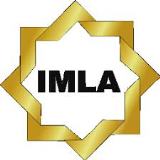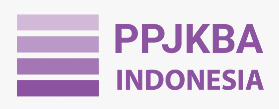FIQIH BISYARAH DI PONDOK PESANTREN TERPADU AL-KAMAL BLITAR
DOI:
https://doi.org/10.21274/ahkam.2021.9.2.325-352Keywords:
Ujrah, Teaching Islam, Fiqh.Abstract
The dynamics of development in the teaching of Islam, by the changes that exist in society. Likewise in terms of receiving rewards in conveying religious teachings in the community. The purpose of this study was to find out the practice of Ujrah ala Thaat by the clerics (asatidh) of Madrasah Diniyah Pondok Pesantren Al-Kamal?, to find out the legal nature of Ujrah by Ustadh Madrasah Diniyah PP al-Kamal?, to find out the impact of taking Ujrah (rewards) by Madrasah Diniyah clerics on Learning Activities at Al-Kamal Islamic Boarding School? This research method is a type of field research (field research) with a qualitative approach and also library research, literature. This research was conducted at Pesantren al-Kamal, with data collection by interviewing several Madrasah Diniyah teachers. Research Results: The practice of bisyarah in Madrasah Diniyah al-Kamal Blitar is the reward received by asatidh who has given up the benefits (services) of teaching Islamic religious knowledge at a voluntary rate. Bishara law or ujrah accepted by Asatidh Madrasah Diniyah al-Kamal Blitar is permissible or lawful, considering that it has fulfilled the concept of ijarah in fiqh review. The legal basis is that nothing is clearly prohibited in the Nash Al-Qur'an and Hadith. Whereas in Madrasah Diniyah ujrah or bisyarah is done voluntarily, the absence of bisyarah is used as the main goal in the implementation of Islamic religious teaching in Madrasah Diniyah. The impact of Ujrah (reward) for the asatid of Madrasah Diniyah al-Kamal is as an encouragement, fostering a happy attitude (bisyarah) for teachers, so that in carrying out teaching activities in an orderly, diligent, and orderly manner. Also as voluntary assistance from the Madrasah Institute for Asatidh, in alleviating the need for soap, gasoline and light necessities in their family's life.
References
Al-Ghazali, Ihya’ Ulum al-Din, Semarang: Thoha Putra, t.th.
Al-Husayni, Kifayat al-Akhyar, Surabaya: al-Hidayah, t.th.
Al-Jauziyah, I’lam al-Muwaqiin, Beirut: Dar al-Fikr, 1977.
Al-Syaukani, Nayl al-Authar, Kairo: Mustafa al-Babi al-Halabi, t.th.
al-Syarbini, Muhammad, Mughni al-Muhtaj, Jakarta: Pustaka Azzam, 2007.
al-Zuhayli, Wahbah, Al-Fiqh al-Islami Wa Adilatuhu, Beirut: Dar al-Fikr, 2000.
al-Dihlawi, Wali Allah, al-Musawwa Syarh al-Muwatha, Beirut: Dar al-Kutub Ilmiyah, t.th.
Arifin, Kapita Selekta Pendidikan (Islam dan Umum), Jakarta: Bumi Aksara, 1995.
Banten, Nawawi, Tawsyikh ala Ibn Qasim al-Ghazi, Semarang: Thoha Putra, t.th.
______, Tafsir Munir, Beyrut: Dar al-kutub Ilmiyah, t.th.
Departemen Agama RI, Al-Qur’an dan Terjemahnya, Jakarta: Departemen Agama RI, t.th.
Heri, Sam, “Menakar Pro-Kontra Hukum Ujrah Pengajar Ilmu Agama Dan Urgensinya Dalam Konteks Era Modern”, Jurnal El Furqania, Vol. 05, No. 2, Agustus 2019.
Ibn Abi Syaibah Abdullah Ibn Muhammad Ibn Ibrahim Ibn Utsman Ibn Khawarisi al-Abasi, Abu Bakar al-Kitab al-Mushannaf fi Ahadits wa al-Atsar, Riyadh: Maktabah al-Rasyid, 1409.
Imarah, Muhamad, Jawahir al-Bukhari, Semarang: Thoha Putra, t.th.
Jazairi, Abdurrahman, Fiqh ‘Ala Madzahib al-Arba’ah, t.th.
Manzhur, Ibn, Lisan al-'Arab, Beirut: Dar Shadir,t.th.
M. Echols, John dan Shadili, Hassan, Kamus Inggris Indonesia, Jakarta: PT. Gramedia, 1996.
Nur Hidayati, Ika Novi, Pengupahan Dalam Perspektif Hukum Islam dan Hukum Positif”, Jurnal Az Zarqa’, Vol. 9, No. 2, Desember 2017.
Syatha al-Dimyathiy, Muhammad, I'anah al-Thalibin, Beirut: Dar al-Fikr, t.th.
Nawawi, Majmu’ Syarah Muhaddhab fi fiq al-Syafii, Kairo: Maktabah al-Imam, t.th.
Rachmat’, Syafei, Fiqh Muamalah, Bandung: Pustaka Setia, 2001.
Sairi, “Pelaksanaan al-ujrah ala attho’ah Menurut Pandangan Hukum Islam” (Studi Kasus Di Kel. Tangkerang Timur Kec. Tenayan Raya Kota Pekan Baru)”, Fakultas Syariah dan Hukum Universitas Islam Negeri Banten, 2013.
Shahab, Umar, “Ujrah ala Thaat Dalam Tinjauan Syar’i” Dalam Problematika Hukum Islam Kontemporer, Yogyakarta: Lembaga Kajian Islam dan Kemasyarakatan-Pustaka Firdaus, 1998.
Taimiyah, Ibn, Majmu’ Fatawa, Beirut: Dar al-Arabiyah: 1398.
Qudamah, Ibnu, al-Mughni , Jakarta: Pustaka Azzam, 2007.













